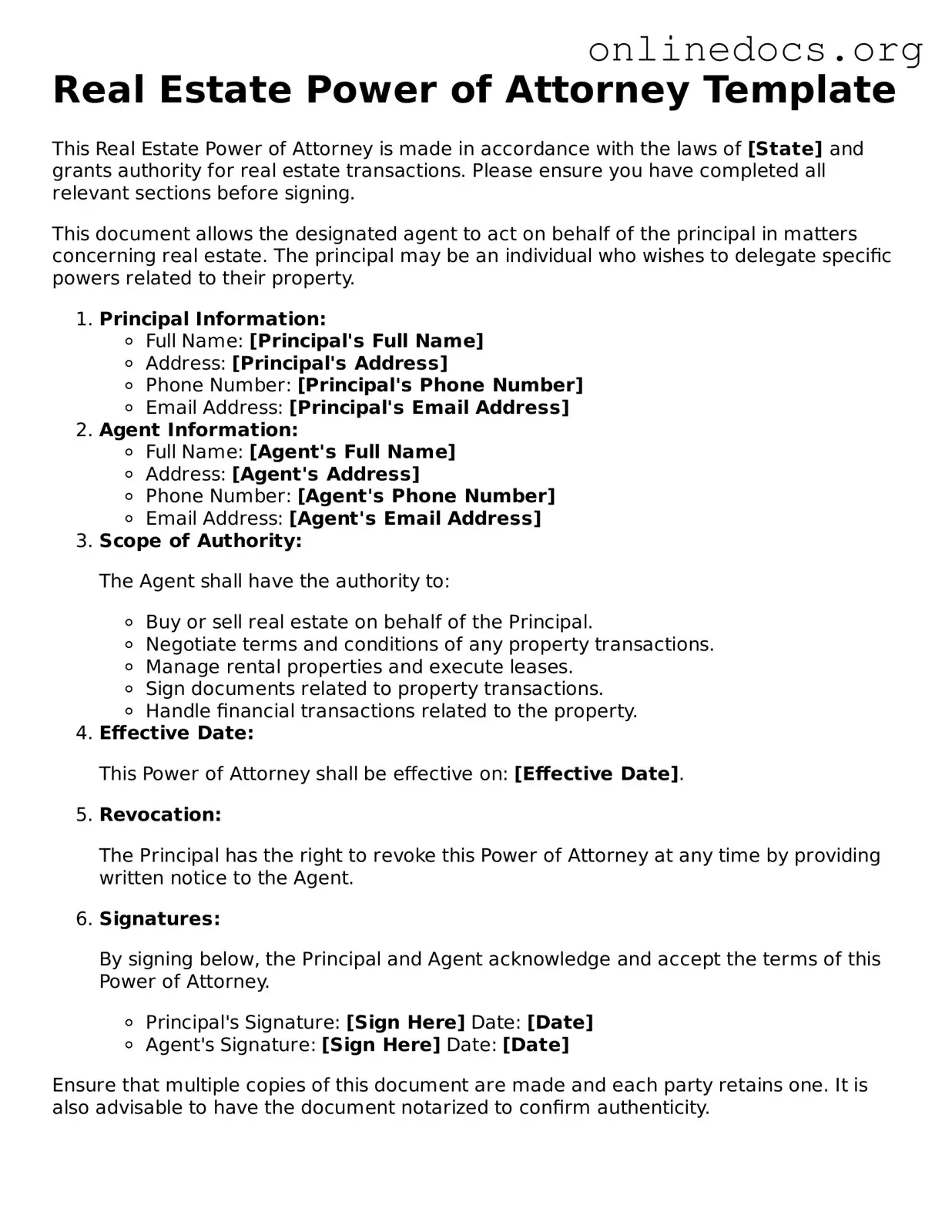The Real Estate Power of Attorney (POA) is similar to a General Power of Attorney. Both documents grant authority to an agent to act on behalf of the principal. However, while a General POA can cover a wide range of decisions, the Real Estate POA is specifically tailored for real estate transactions. This includes buying, selling, leasing, or managing property. The focus on real estate makes it distinct, but the underlying principle of delegation of authority remains the same.
A Durable Power of Attorney is another document that shares similarities with the Real Estate POA. Both allow an agent to make decisions on behalf of the principal, but the Durable POA remains effective even if the principal becomes incapacitated. This is particularly important in real estate transactions, where timely decisions may be crucial. The durability feature ensures that the agent can continue to act without interruption during periods of incapacity.
The Limited Power of Attorney is also comparable. This document restricts the agent's authority to specific tasks or situations. Like the Real Estate POA, it can be used for particular real estate matters, such as selling a specific property. The key difference lies in the scope of authority; the Limited POA confines the agent’s powers to designated actions, while the Real Estate POA is generally broader within the realm of real estate.
For those considering the legalities of delegating authority, it's essential to understand the nuances of different Power of Attorney forms, as they can significantly affect decisions regarding property and health. Resources like legalformspdf.com provide valuable information on the various types available, helping individuals choose the right document to suit their needs.
A Healthcare Power of Attorney is another document that, while focused on medical decisions, mirrors the Real Estate POA in its fundamental purpose. Both documents empower an agent to make decisions on behalf of another person. In healthcare, the agent makes medical choices when the principal is unable to do so. Though the subject matter differs, the concept of appointing someone to act in one’s best interest is a common thread.
The Financial Power of Attorney is similar in that it allows an agent to handle financial matters for the principal. This can include real estate transactions, but it also covers a broader range of financial decisions. The Real Estate POA is more specialized, focusing solely on real estate, while the Financial POA can encompass various financial responsibilities, including banking and investments.
The Quitclaim Deed also shares some similarities with the Real Estate Power of Attorney. Both documents are used in real estate transactions, but they serve different purposes. A Quitclaim Deed transfers ownership interest in a property without guaranteeing the title's validity. In contrast, the Real Estate POA allows someone to act on behalf of the property owner, facilitating the transfer of property rights or management responsibilities.
Lastly, the Lease Agreement can be viewed as related to the Real Estate POA. Both documents involve real estate and the rights of parties involved. A Lease Agreement outlines the terms of renting property, while the Real Estate POA allows an agent to negotiate or sign leases on behalf of the property owner. The connection lies in their shared focus on property rights and management, although they serve different functions in the real estate process.
